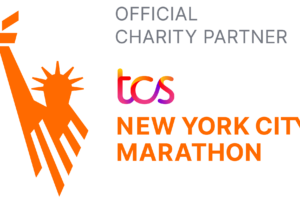NBCA’S HENRY ADDRESSES FDA PANEL
For Immediate Release
Tarrytown NY, March 20, 2009 – NBCA Treasurer, David Henry testified before FDA Advisory Panel reviewing Rivaroxaban from Johnson & Johnson. It recommended FDA approval for this oral anticoagulant for knee and hip replacement surgery. Mr. Henry also read a letter from NBCA Secretary Tom Hogan, who underwent hip replacement surgery two months ago. NBCA Executive Director, Alan Brownstein said that “if FDA approves this drug, there will be a new therapeutic option to prevent DVT in hip/knee patients.
The transcript of the testimony is below:
FDA Meeting Presentation 3/19/09
Good morning. I would be remiss if I did not begin my remarks by thanking the committee for the opportunity to speak on a topic of such great importance – the improvement of anticoagulation therapy for patients receiving hip or knee replacement surgery.
My name is David Henry and I am here today (along with Tom Hogan) with support from NBCA. This support is a direct result of individual donations to this organization. As a board member and officer of NBCA as well as a long term Warfarin user as a result of idiopathic DVT/PE, I have a very personal interest in this topic. NBCA is a nationwide, community-based volunteer health organization whose mission is to prevent, diagnose and treat thrombosis and thrombophilia through research, education, support and advocacy. NBCA was awarded two cooperative agreements commencing in 2007 from the Centers for Disease Control and Prevention (CDC). This funding enables the development of a nationwide network of regional chapters whose mission is to promote public awareness, patient/family education, website development, and health professional training with an emphasis on prevention.
In September of 2008, the Surgeon General issued a Call to Action to Prevent Deep Vein Thrombosis and Pulmonary Embolism spotlighting the public health urgency affecting 350,00 to 600,000 Americans annually who have blood clots – resulting in at least 100,000 deaths. While recent data from the Mayo Clinic (Heit) suggests a higher number of affected Americans and a mortality rate approaching 300,000 . Whichever data is used, blood clots, most of which can be prevented, represent a leading cause of death in the United States. Of those people DVT/PE, 30 % die within one month of diagnosis while 25% of those with PE die suddenly. DVT/PE survivors face an uncertain future as 1/3 have a recurrence within ten years and 1/3 with DVT experience other complications such as post-thrombotic syndrome. In the Call to Action (CTA), the Surgeon General had some specific language for the important work that you are here to begin today.
An entire section was devoted to “gaps in application and awareness of evidence-based interventions.” Interesting enough, considerable documentation exists that discloses that evidence-based DVT/PE guidelines are not being followed. One large epidemiological study disclosed that a majority of at risk patients with ultrasound-confirmed DVT were not prophylaxed despite the risk. The CTA recommended encouraging the development of new pharmaceutical agents with faster onset, a wider therapeutic range and fewer food and drug interactions. The CTA also recommended conducting research into the best drugs, dosing strategies and anticoagulation treatment regimens for certain patient populations. The demand for hip/knee replacements is trending upward due to our aging population. In 2004, less than one million procedures were performed. In 2009, it will be nearly 1.2 million US patients who receive hip/knee replacements, and for them, the risk of blood clots is real. The reluctance to follow evidence-based guidelines on the part of the orthopedic surgeons who treat these patients is of great concern. Their major concern is that bleeding is a greater risk than clotting. In essence, a clot is an “act of God” while bleeding is perceived as the surgeon’s mistake.
Attached to your materials is a Stop Light graphic which we have developed as an educational tool clearly pointing out that hip and knee replacement fall in the “high risk” red zone. I would like to introduce a fellow board member and Secretary of NBCA, Tom Hogan. Tom has a very compelling, first person experience to share on this subject. (TOM HOGAN READS HIS LETTER) We believe patients will benefit from the acceptance of this drug – No INR monitoring, pill instead of an injection, limited or no food interaction, minimal interaction with other drugs and quick on/offset. Moreover, if the potential benefits are realized patients will experience close to optimal care, reduced risks for complications, increased acceptance by orthopedic surgeons performing hip and knee replacements and reduced morbidity and mortality.
As an organization, NBCA supports the Surgeon General’s Call to Action. We appreciate the committee’s review of this promising drug. We want a thorough review of safety and efficacy. If approval is recommended, we urge an expedited FDA consideration so that more than one million hip and knee replacement patients can reap the all benefits as soon as possible. Thank you.
Click here to view David’s Power Point.
Click here to read the Dow Jones article.






